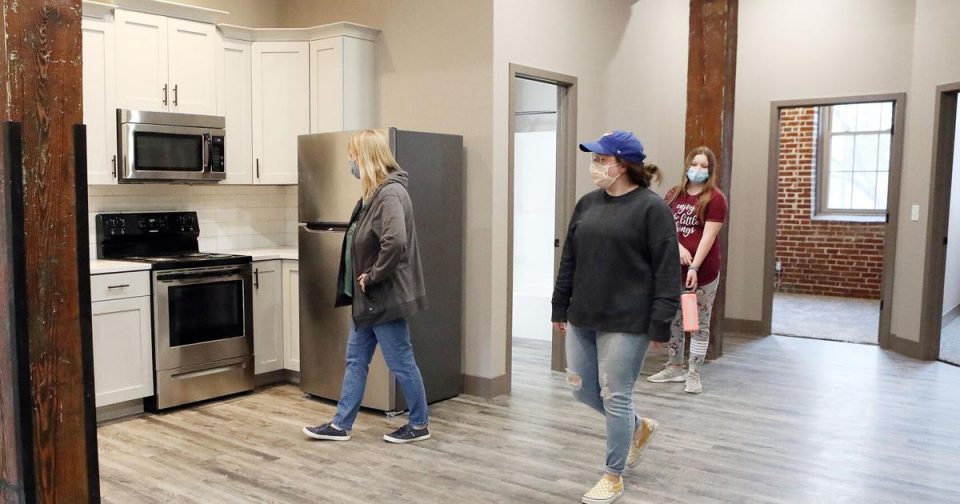For the next 11 years, developer Ed Schmelz will be the recipient of a 50 percent tax abatement on the Shoe Factory Lofts property, an 84-unit housing development in the former Washington International Shoe Factory.
Members of the Washington City Council on Monday weren’t bemoaning the loss in property tax revenue, but instead spent part of the meeting lauding the project for “bringing new life into an eyesore” and “rejuvenating an entire neighborhood.”
Schmelz said he appreciated the praise from city leaders.
“The truth is that whenever you take a project as big as the International Shoe Factory, it takes a big team effort. What we accomplished could not have been done without the cooperation of the building department, the fire department. They helped us out a lot,” Schmelz said.
Under the terms of the tax abatement agreement that was brokered in 2020, Schmelz’s development company, ELS Properties, was required to invest at least $6 million in the former shoe factory to create at least 80 residential units in the building. In exchange, the developer received a tax abatement until 2033.
Washington Community and Economic Development Director Sal Maniaci confirmed the numbers to members of the council on Monday, saying ELS Properties had invested more than $9 million in the property and created 84 residential units.
According to statistics provided by Schmelz, the building is 100 percent occupied and there are at least 10 people on the waiting list.
Of the 84 units in the building, eight are rented to people who are at least 60 years old, seven are rented to people in their 40s and the remaining 57 units are rented to people younger than 35.
“The International Shoe Factory is a unique building in itself, but this has demonstrated that there was a need for entry-level housing for people who are just graduating college or who are just starting their careers,” said Maniaci, who added the units rent for between $800 to $1,100 per month, depending on the floor plan. The rent includes most utilities.
The International Shoe Factory was last used as a storage facility in 1964. Since then, the building had been vacant.
“Obviously, it was a longtime blighted property,” Maniaci said. “Sure, there were some minor improvements done to the building, but for a long time it was neglected. Renovating the building has really benefited the entire neighborhood.”
Washington Councilmembers Gretchen Pettet and Joe Holtmeier, who represent the Fourth Ward that includes the Shoe Factory Lofts development, agreed. They said the 50 percent property tax abatement was worth it to the city, given the outcome of the development.
“I remember the Shoe Factory being this scary place, because it was abandoned, had broken windows. Now, it is an attractive building and I couldn’t be more proud of the work that was done there,” Pettet said.
Pettet and Holtmeier said they have received no complaints about the development. When the project was first proposed, neighbors vocalized concerns about parking and the increased traffic that the residents would create.
“It is just awesome, it is something that I never thought I’d see,” Holtmeier said.


